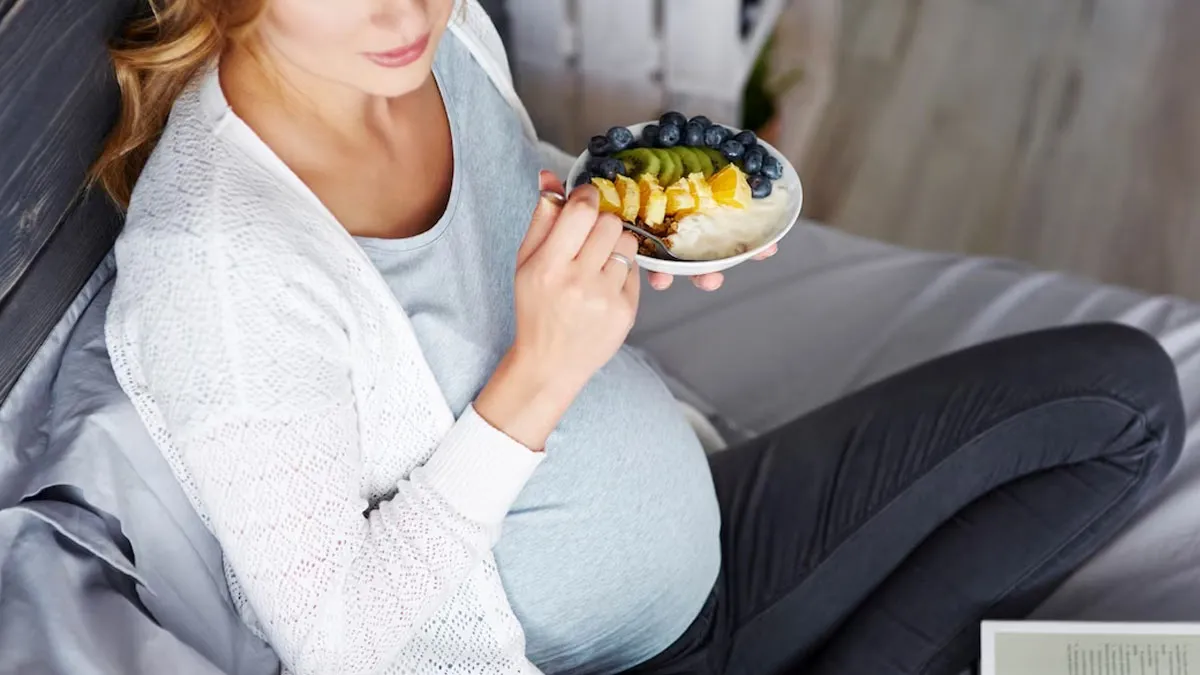
Monsoon spells relief from the heat of summer, but for expectant mothers, it also brings a special set of eating considerations. The high humidity levels and risk of waterborne diseases demand added caution to ensure the health and safety of mother and foetus alike.
Table of Content:-
In an exclusive interaction with the editorial team of Onlymyhealth, we asked our expert, Pooja Singh, Dietician at ShardaCare, Health City - Nodia, to help us walk expectant mothers through do's and don'ts during monsoon eating, ensuring that this season is enjoyed safely and deliciously.
Monsoon Diet for Pregnant Women
“The monsoon months, as lovely as they are, can prove to boost foodborne disease risk. For pregnant women, the immune system needs to be strong and the diet right,” Pooja highlighted. Here's what to adopt and limit, as per experts.
What to Eat
1. Fresh, Well-Washed Fruits of the Season
The monsoon season is blessed with a variety of fruits such as pomegranates, apples, pears, and bananas. These are rich in crucial vitamins, minerals, and fibre that are essential during a healthy pregnancy. Make sure to wash them well under running water to get rid of any dirt or contamination. Pomegranates, for example, contain iron that prevents anaemia, which is one major problem during pregnancy.

Also Read: Do Toothpaste Tablets Really Work? Experts Weigh In on Their Oral Health Benefits
2. Steamed or Cooked Vegetables
Choose steamed or cooked vegetables such as pumpkins, gourds (bottle gourd, ridge gourd), and carrots. High-heat cooking destroys most parasites and bacteria that may be present because of the humid weather. They offer essential nutrition without endangering health through the consumption of raw fruits and vegetables during this time. For instance, carrots are rich in Vitamin A, which is crucial for fetal development.
3. Hot, Homemade Soups and Broths
Fresh vegetable soups, lentil soups, or lean meat soups prepared hot are extremely comforting and healthy during the monsoon. They are easily digestible and keep you hydrated. Adding ginger and garlic would also give the immune system a boost. A clear vegetable broth, for example, can soothe a sensitive stomach and offer essential electrolytes.
What to Avoid
1. Raw or Undercooked Seafood and Meat
Water contamination risk increases during monsoon, and this may impact seafood and poultry. Raw or undercooked fish, shellfish, or meat may expose you to Listeria or parasites that may be harmful to both mother and child. Make sure all meats are cooked to their safe internal temperature.

Also Read: Fighting Social Stigma: Mental Health Issues Faced by Closeted LGBTQ People
2. Street Food and Unhygienic Outside Food
The temptation for steaming hot pakoras and chaat in monsoon cannot be resisted, but street food is usually compromised in terms of hygiene. Sewage-contaminated water for preparation, unwanted ingredients stored in unhygienic conditions, and reused utensils that have not been sanitised can cause serious gastrointestinal infections. It is advisable to completely avoid all street foods and eat only home-cooked food.
3. Outside Vendor Cut Fruits and Salads
Although fruits and salads are mostly healthy, those pre-cut by outside vendors during monsoon are an absolute no-no. They tend to be exposed to dust, flies, and dirty handling, and hence, the risk of bacterial contamination is high. Cut and prepare your fruits and salads fresh at home after they are properly washed.
Bottomline
By simply adhering to these guidelines, pregnant women can navigate the monsoon season safely while providing their bodies and developing babies with all the nutrients they need. Maintaining good hygiene and careful food selection will take pregnancy a long way in terms of staying healthy and cheerful during this special time of year.
Also watch this video
Read Next
Is It Safe to Eat Ice Cream While Pregnant? Experts Weigh In on Iodine and Maternal Nutrition
How we keep this article up to date:
We work with experts and keep a close eye on the latest in health and wellness. Whenever there is a new research or helpful information, we update our articles with accurate and useful advice.
Current Version